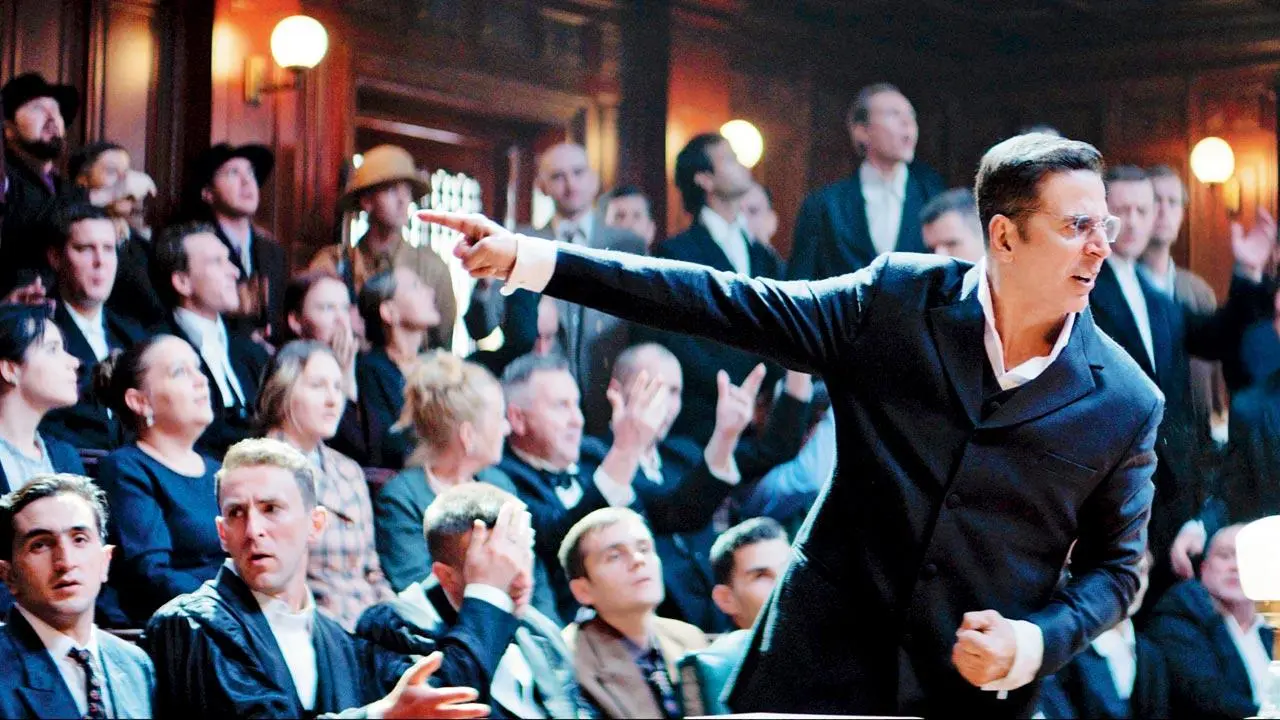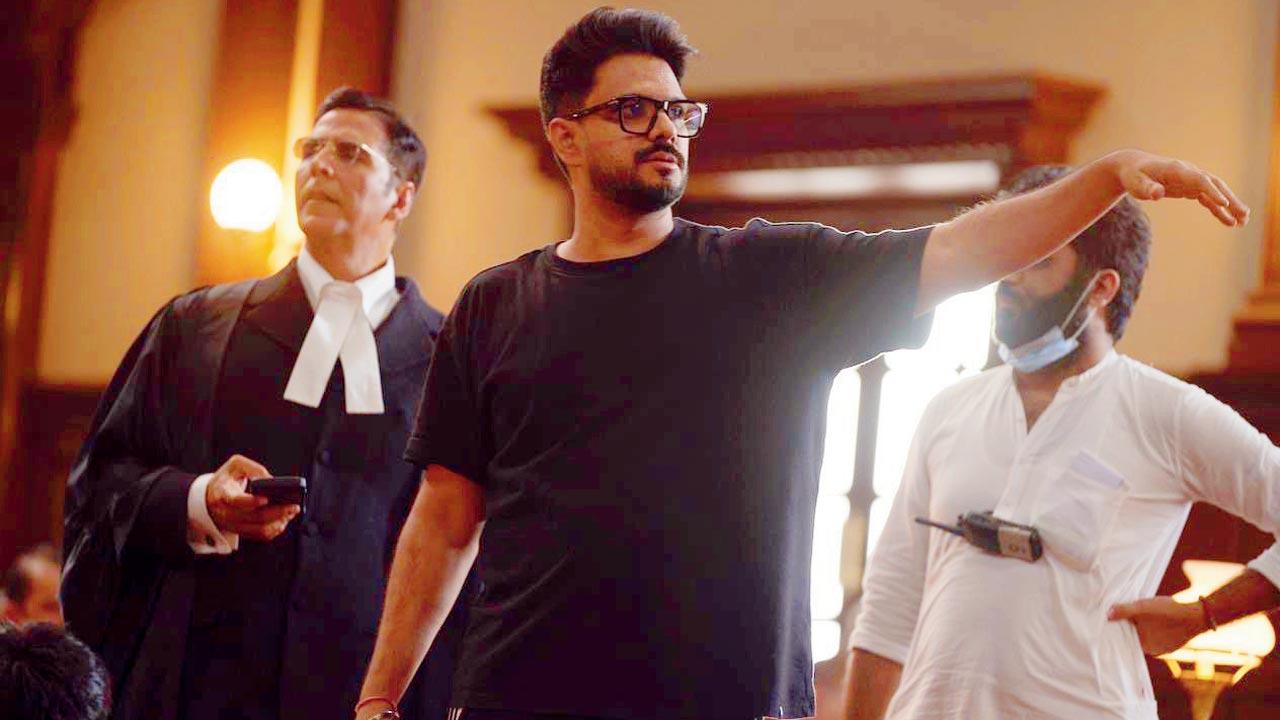Kesari Chapter 2 director Karan Singh Tyagi, who makes his big-screen debut with the movie about the massacre, explains why the 106-year-old incident is still relevant

Akshay Kumar in Kesari Chapter 2
They were told to disperse. They didn’t. So I opened fire.” That chilling line was reportedly uttered by General Reginald Dyer after ordering troops to open fire on thousands of unarmed civilians in Amritsar’s Jallianwala Bagh. Over a century has passed since that April afternoon in 1919, but the brutality of the massacre continues to haunt India’s collective memory.
ADVERTISEMENT
For lawyer-turned-filmmaker Karan Singh Tyagi, who makes his big screen debut with Kesari Chapter 2, the story still remains as relevant as it was 106 years ago, despite countless filmmakers—from Shoojit Sircar and Richard Attenborough to Ram Madhvani—having looked at the event from various lenses. “The event speaks to the present times that we live in. It’s a post-truth world where fake news is rampant. I was fascinated that when people read about the Jallianwala Bagh tragedy, the next day, the truth was suppressed,” says Tyagi.
“There were regional newspapers that wanted to report the truth, which got burned down. There’s this famous poem written by a survivor called Khooni Baisakhi—the British Empire went to great lengths to ban that poem. The Empire started spreading a fake narrative through their publications, especially the English media, where the victims were labelled as terrorists. The whole narrative that the British Empire spun was that the people at Jallianwala Bagh were armed, and General Dyer had to shoot in self-defence. I think it’s a fascinating story to bring to the people in 2025,” he adds.
 Tyagi (centre) directs Akshay Kumar in Kesari Chapter 2
Tyagi (centre) directs Akshay Kumar in Kesari Chapter 2
Tyagi wanted to look at it from two lenses. “One is from the empire machinery and what they did pre-April 13 and post-April 13. And the second is the human aspect of the tragedy.”
It almost seems like history is cyclical, because in 2025, wars continue to be waged around the world. We ask him if as a filmmaker, he feels compelled to tell a larger tale? “When you’re true and you’re authentic to your own story, the more specific, the more real you make it, it becomes universal. This is the story of Sankaran Nair, who was knighted by the British Empire. And, he was the only Indian member on the Viceroy’s executive council. For him to then take on the British in the most dramatic of ways is a story of valour. When he resigned from the council, he told the Viceroy [who can be compared to the PM today] that ‘your empire is being run by yes-men so why don’t you make the jamadar replace me’.”
Being a student of law and politics, his core interest has always been in stories that involve the state, its fallacies, tragedies and injustices. “I read the source material and was enamoured. The book is called The Case That Shook the Empire. Sitting down with the authors was key because they are the heirs of C Sankaran Nair—his great grandson, Raghu Palat and his wife Pushpa Palat. I did my own independent research as well. There’s a lot of literature on Jallianwala Bagh. There is a Canadian author, Kim Wagner, who has written a fantastic book. There is an Indian author who’s not gotten his due, called VN Datta. There’s Kishwar Desai’s book. There are independent accounts of survivors chronicled in the two commissions that were set up. These materials uncover an argument that the film makes as well. The Jallianwala Bagh massacre was actually a planned conspiracy to kill. There was a plane that flew over the Bagh to check whether enough people had assembled. There were troops called in—Gurkha troops and Baluch soldiers—and the Sikh infantry was kept completely in the dark because they would be up in arms if they knew.”
We tell Tyagi about the documentary in which Caroline Dyer, General Dyer’s great-granddaughter, is seen defending him. “That interview really angered me. She labelled the people who came to Jallianwala as looters. The film is important because you’ll be shocked to know that the empire went into overdrive after the massacre. They went to extreme lengths in order to laud General Dyer as a hero.”
The film started off as an independent movie despite being headlined by the original star Akshay Kumar. “Do you know Kesari is the colour of revolution? For us, the baton of revolution is being passed down to this story where one man is taking on the empire. Revolution seems like a big term but its essence is quite simple—standing up for what’s right,” says Tyagi.
There’s a reason why Kumar is a superstar who has stayed at the top of his game for decades, he says. “He’s been incredible in his support for me. I just want the audience to watch the film because I feel this is one of his best performances. He’s heard stories from his grandfather, from his father. So he feels a personal connection to the tragedy.”
The film is a few days away from release and Tyagi says he and his writers Amritpal Bindra, Sumit Saxena and Akshat Ghildial hope that the audience will take back the famous Pablo Neruda quote from Kesari Chapter 2: “Empires perish because they listened to their lawyers and ministers and not to their poets’. Empires have to listen to the common people of this country.”
April 13
The day in 1919 when General Reginald Dyer opened fire on unarmed protesters at the Jallianwala Bagh in Amritsar
 Subscribe today by clicking the link and stay updated with the latest news!" Click here!
Subscribe today by clicking the link and stay updated with the latest news!" Click here!







